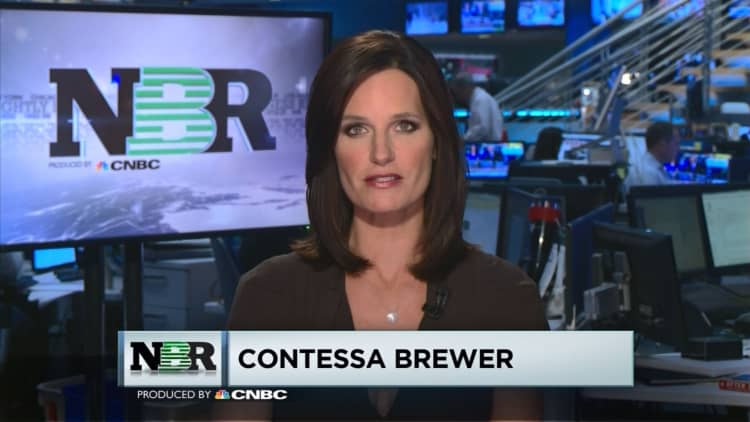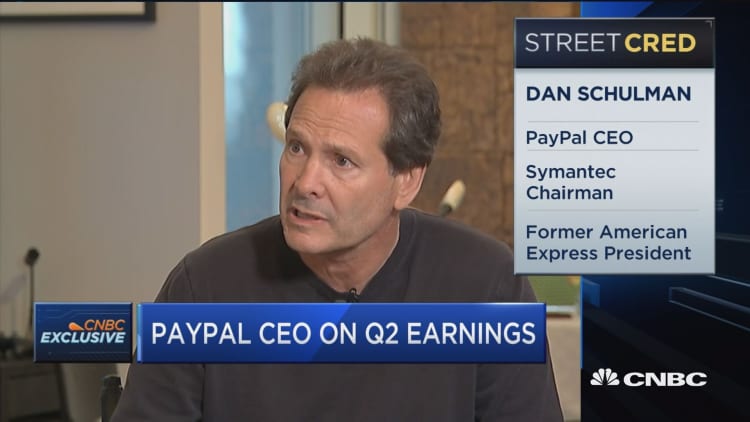
Extreme right groups, shunned by payment processors and traditional companies, are turning to new methods to solicit donations.
"We can't trust these companies because these companies are all controlled by the left. We need to build own systems, our own shadow economy," Pax Dickinson, founder of Counter.Fund, told CNBC.
The site, which Dickinson says launches next month, describes itself as "an ideological crowdfunding platform and self-governing political party" operated now primarily by volunteers.
"Most of our best people are anonymous. They have too much to lose because there's no shadow economy to support them," he said.
The site will be a "grass-roots movement" where supporters can make monthly donations anonymously to a particular cause. Dickinson likened it to a "crowdfunding collective … like a grocery store co-op owned by the people who shop there, managed by the people raising money for it. The more you raise, the more likely you will be elected to the House of Lords, which is the leadership group."
He said he will handle the credit card processing himself because he doesn't trust PayPal and similar companies, and will accept bitcoin donations.
Dickinson, who co-founded the crowdfunding site WeSearchr, was the chief technology officer of Business Insider until he was forced out in 2013 after a Gawker article disclosed a series of offensive tweets he had written.

He now works from his Pennsylvania home where he hopes to launch a shopping site where like-minded extremists can buy from one another.
"It's very similar to what black nationalism has tried to do with the buy black movement. We want to keep our money in the community," he said.
A similar philosophy is behind Hatreon. Cody Wilson, who launched the site in June, calls it "alternative infrastructure for people to leave the dominant platform in protest."
That platform is Patreon, a mainstream membership site for patrons to support "creators" such as artists and musicians.
"That's just wisdom to call it Hatreon," Wilson told CNBC. "In our philosophy, hate has a specific identity."
"There is a motivated group of people who have need of a service," he said. "I have no reservations serving the segment. They are not domestic terrorists."
Wilson, who is based in Austin, Texas, and runs a gun parts website, said he uses a "high-risk processor" for credit card payments because Pay Pal and all major processors dropped him.
Utsav Sanduja knows that risk all too well. He is chief communications officer and global affairs director of Gab, a social media network that has attracted a variety of users with extremist views.
"The reason we are creating the alternative economy is for the simple reason that we are witnessing [that] advertisers really hold users around the world hostage," he said.
And like the lesser known start-ups, Gab is creating its version of a shadow economy. When it launched last year, it was described as the Twitter for extreme-right hate groups, but it has attracted users from a wide range of the political spectrum.
"So Gab right now is working on an ICO [initial coin offering] and cryptocurrency. And we are currently looking at theorems, algorithms where user content can be monetized in terms of impressions," Sanduja said. "And then using that impressions system to essentially be monetized as a kind of currency that fuels it. And we're actually creating our own block chain currency. If PayPal's listening to this, hi PayPal, we're going to replace you PayPal, and we're going to replace you Stripe, and we're going to replace the whole system. And we're also going to replace credit cards and all the little bank transaction fees these big banks are taking."
WATCH: PayPal CEO says he's open to partnerships in war on cash




